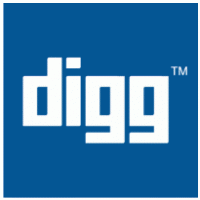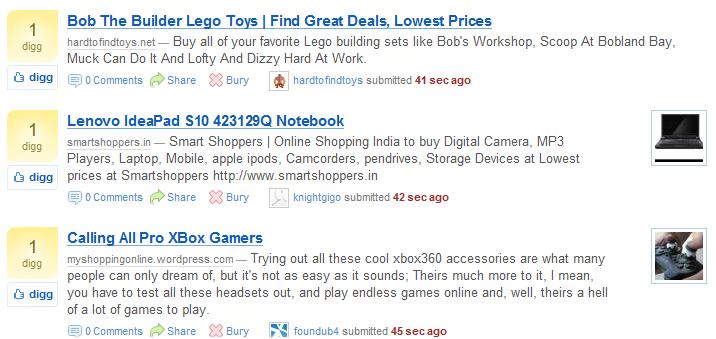
Its been a week since I last posted about Digg’s switch to nofollow on upcoming story links, so I wanted to revisit the issue when I was a little bit less shocked – to see if my opinion would change. It hasn’t, but I think I can point out a few more specifics about why the change won’t do a bit of good.
I used to really enjoy reading upcoming links on Digg (like 2 years ago), but the recommendation engine just ended up turning the new links section into a personalized version of a front page. Most people didn’t make the extra click to see unfiltered submissions, so people weren’t digging and burying the 1 vote stories as much. That’s basically when I lost interest – with nothing getting buried, it was just a link free for all.
Most Diggers won’t ever see a story unless it was submitted by someone with a ton of active friends in their network – and the majority of the front page will still be dominated by a handful of domains and even few submitters. 50 websites take up 46% of Digg’s front page space, and the “mainstream authority” of these sites even suggests there might be some sort of white list in place to give favoritism toward more “established media” outlets. Well, that sort of defeats the purpose of a democratic community, doesn’t it? “Pick your favorite story from our pre-approved list!”
And nofollow isn’t going to magically fix the spam issue because people are still going to submit for the perceived value of nofollow links in Yahoo & Bing. Further, many people who think they’re “doing SEO” don’t even know what nofollow is or how to check for it. A quick look at the unfiltered upcoming page today confirms that the flow of low quality links, spam, and general noise is completely unaffected by the recent change.

Some Diggers even get banned for having a social network that is “too effective.” Lists and stories of well-known members who ultimately met the ban stick can be found here, here, and here – so don’t just take my word for it.
Of course, the switch to devalue upcoming links just puts a higher premium on making it to the front page – and that was already selling for over a hundred bucks. Expect these sorts of schemes to explode in popularity as the “smart” SEOs realize where the link juice is at.
Digg is not really a democratic filter finding the web’s best content, it has become a frame-jacking scraper site that happens to have a lot of user comments and a high pagerank.
What Digg is really doing, is giving ammo to the “authority” content producers like the Associated Press and NY Times who want surfers to start paying for content views and short quotes. Those are the sites that end up being submitted to Digg the most, and while they’ll continue to receive the benefit of their front page stories, Digg may start outranking them for their own “nofollowed” headlines and through their shortened and framed digg links. So in a year or two, when the AP comes to sue over quote licenses, they might actually have a case they can win.
I won’t even know whose side to take.

Leave a Reply